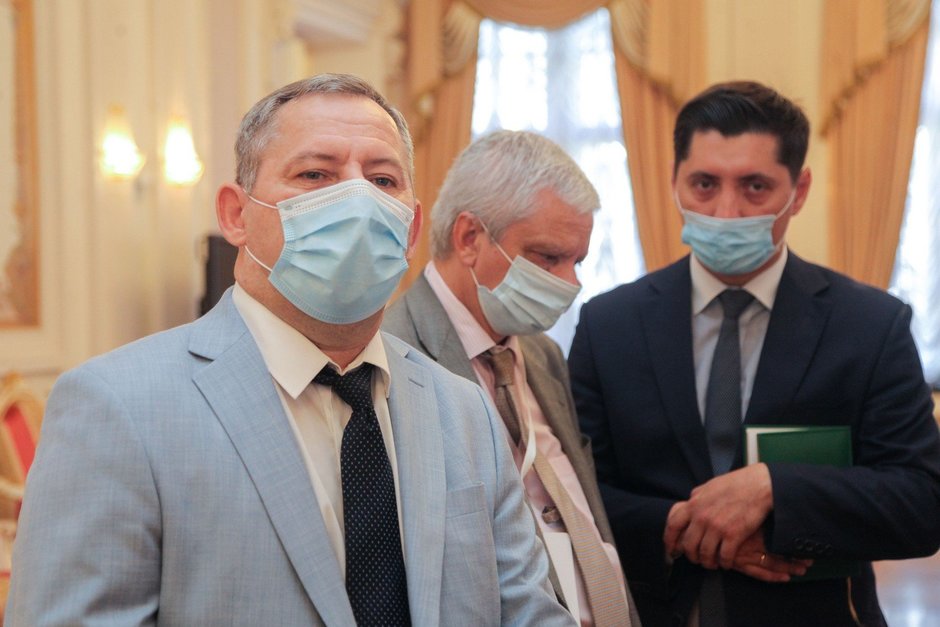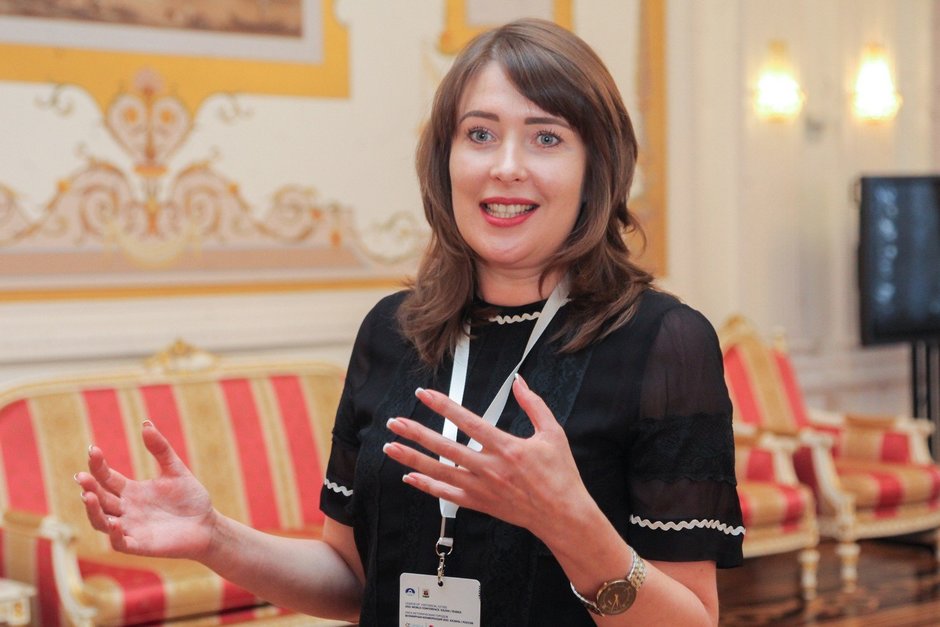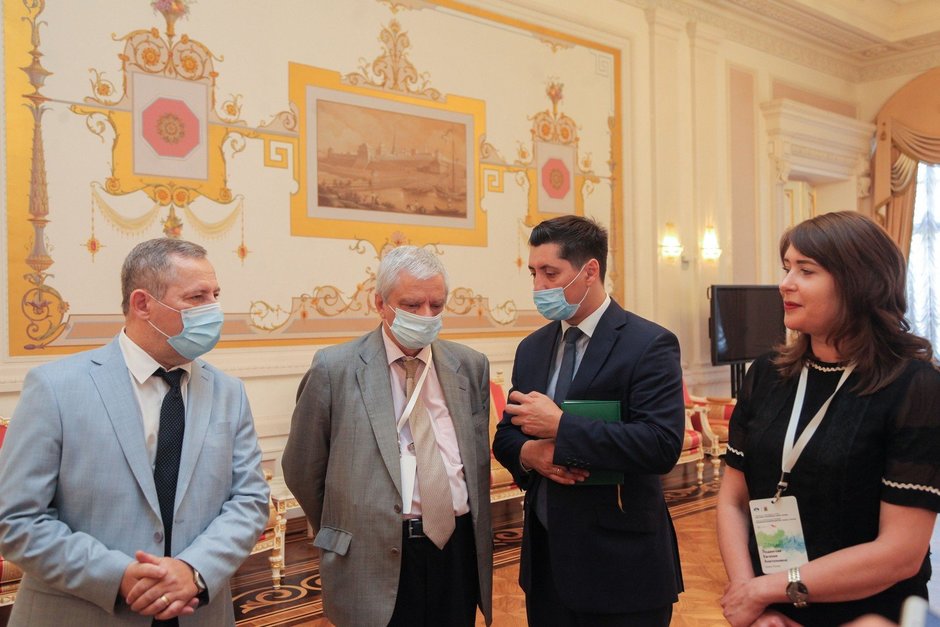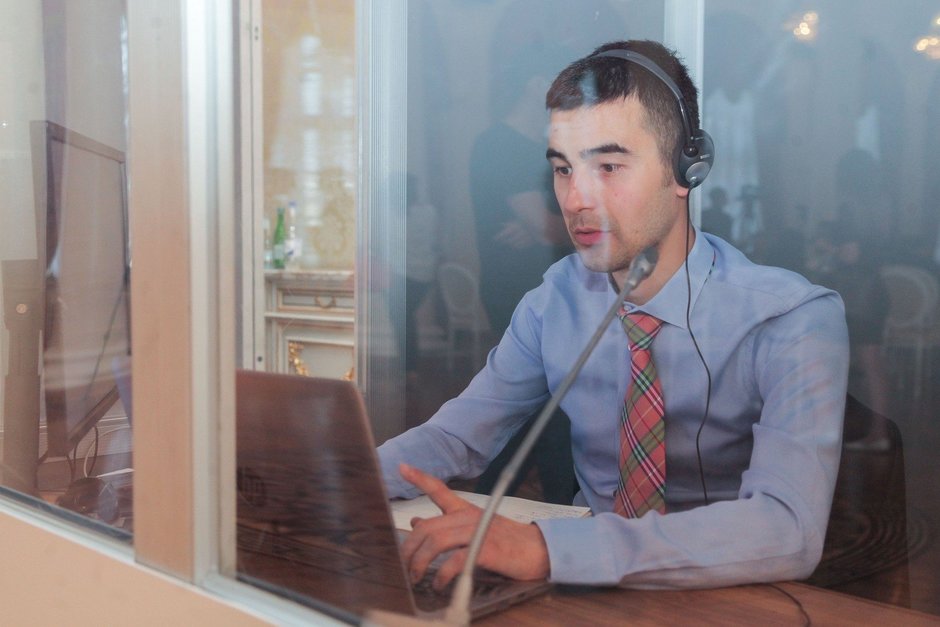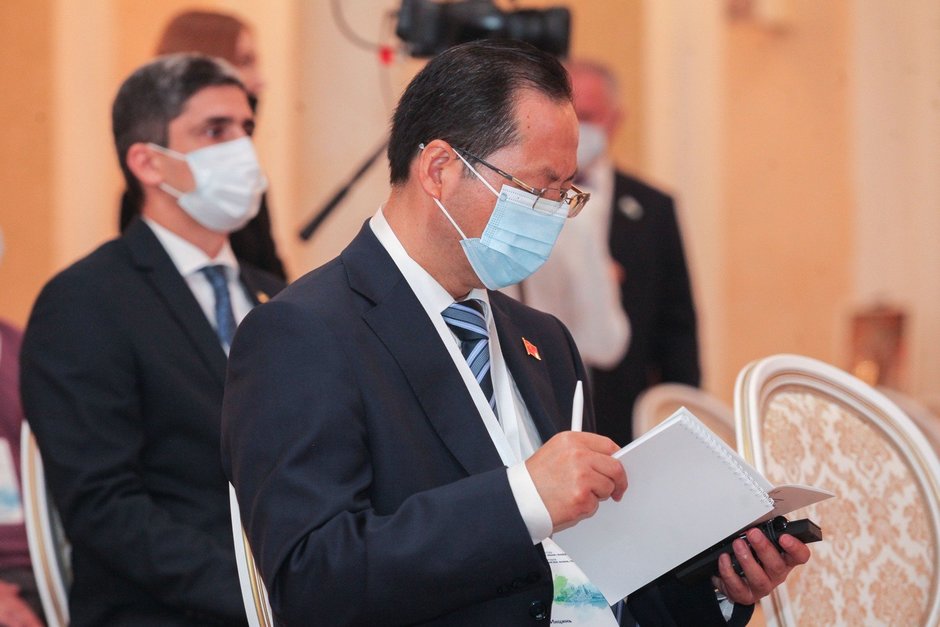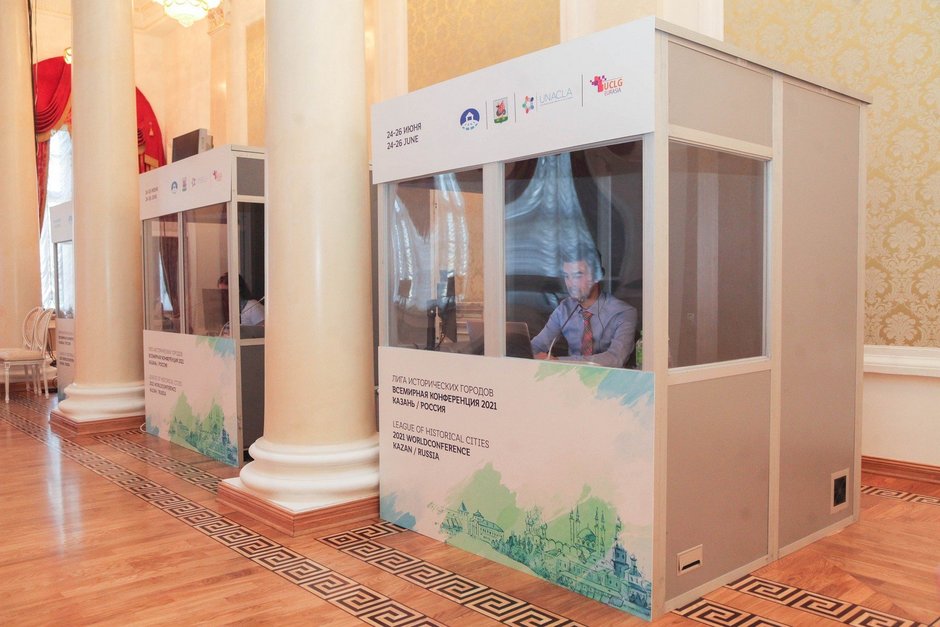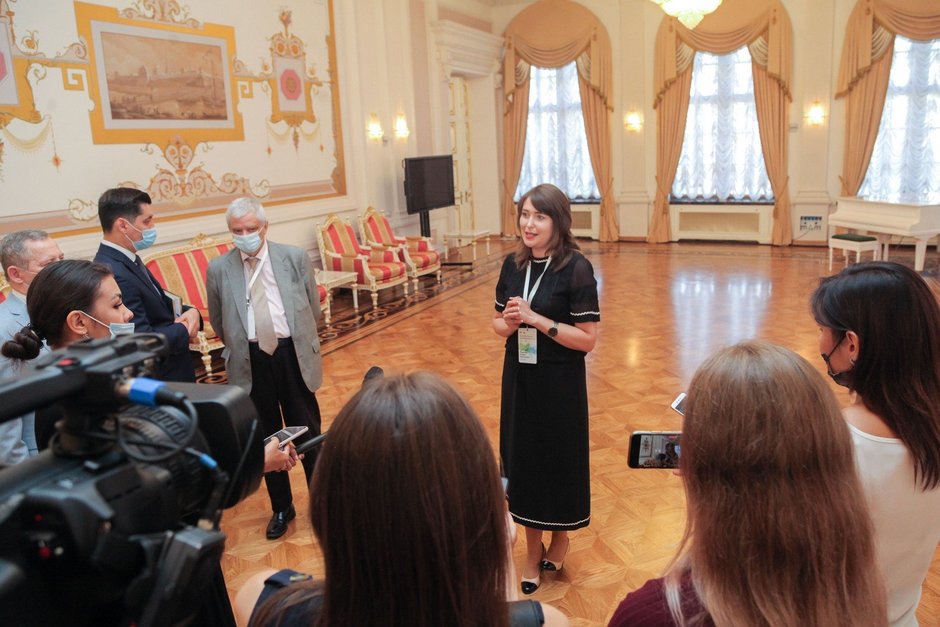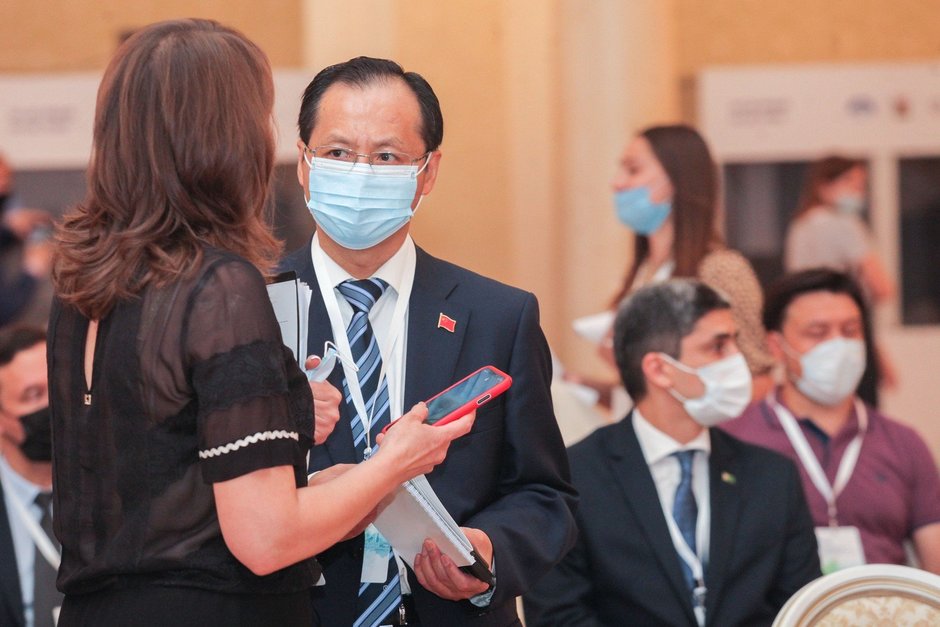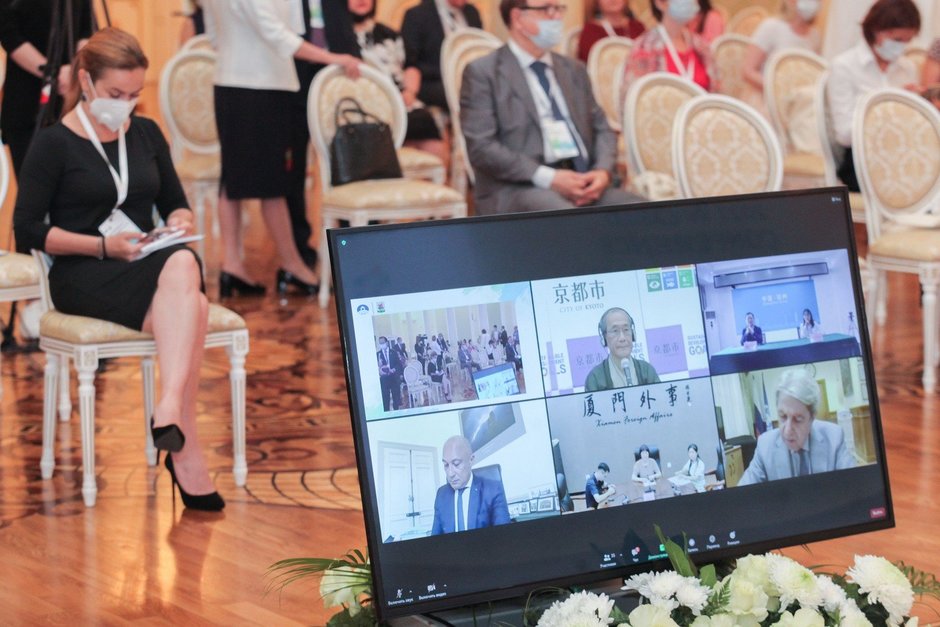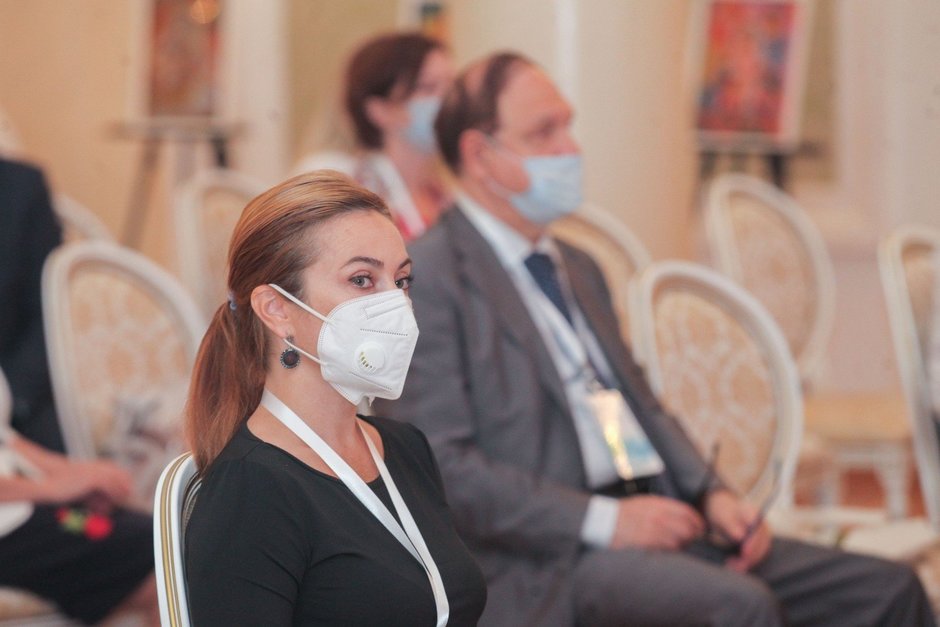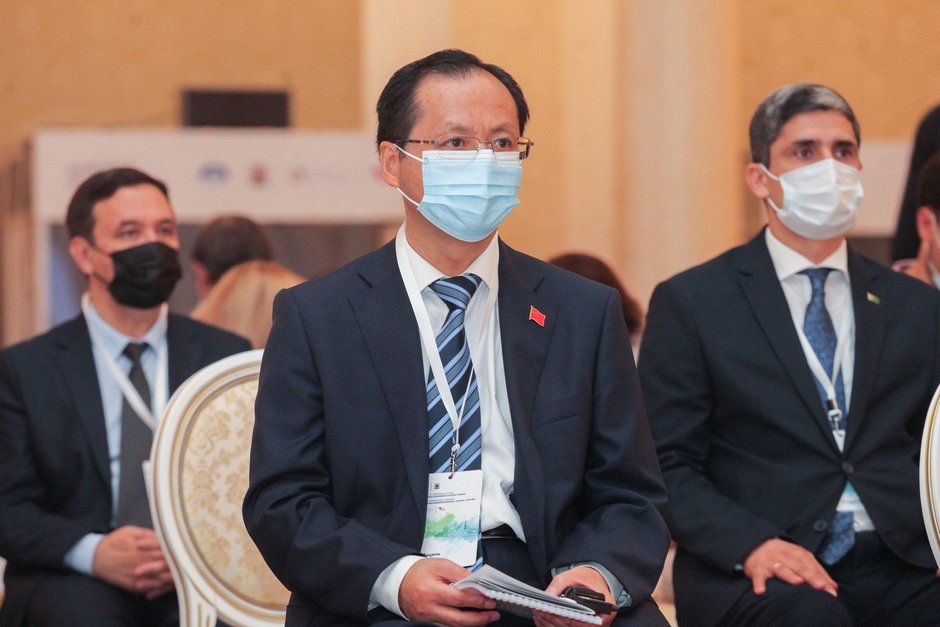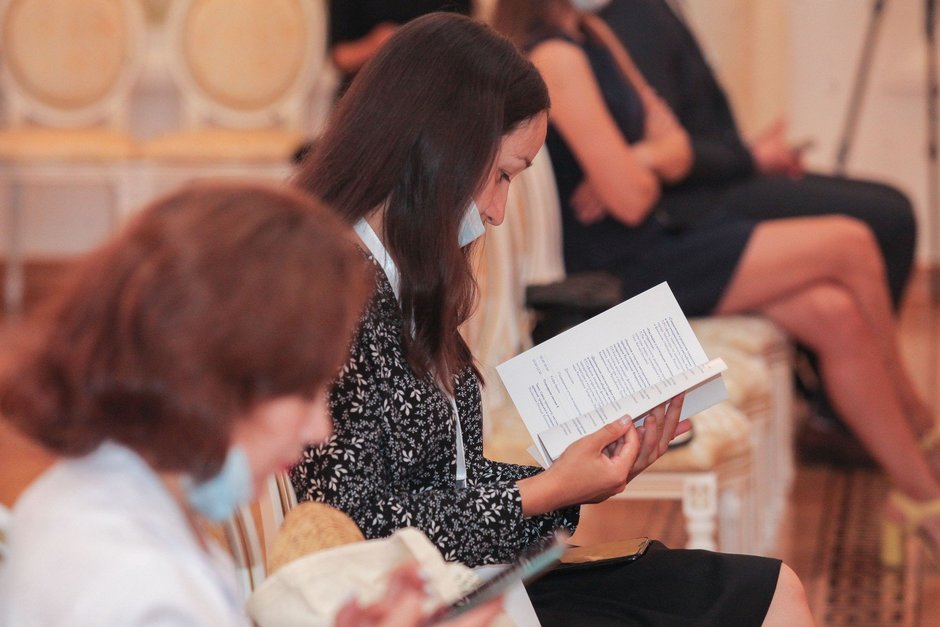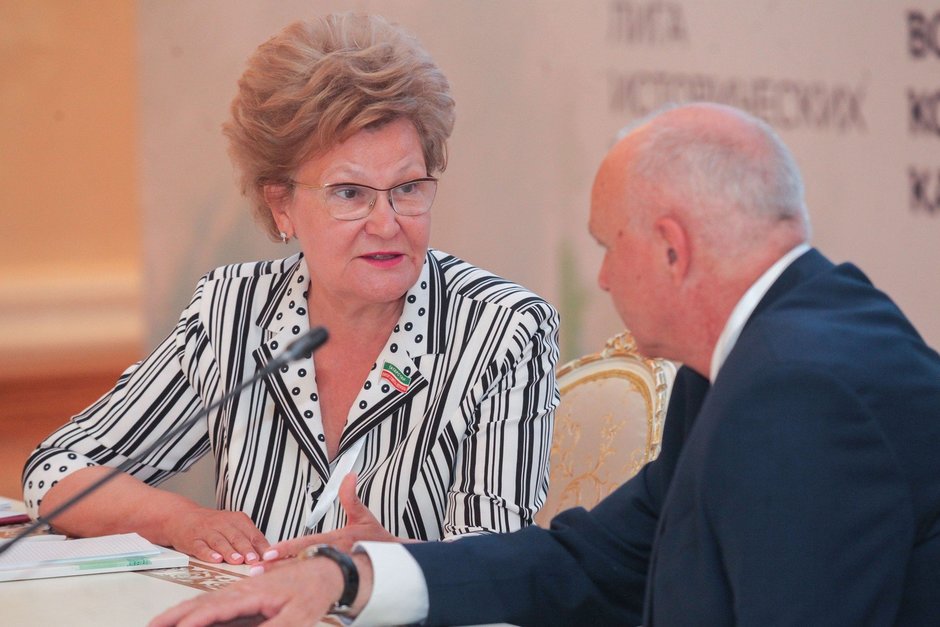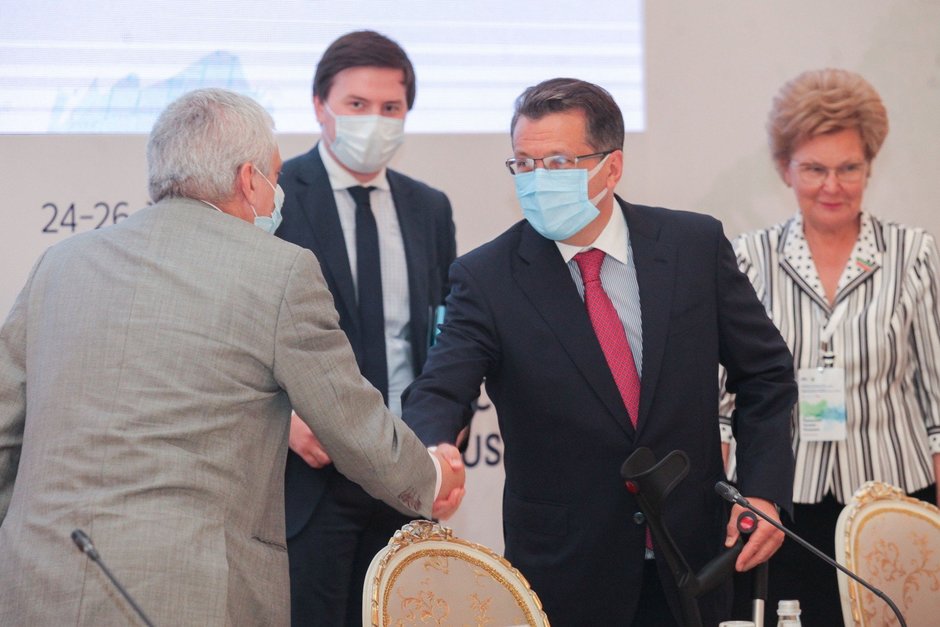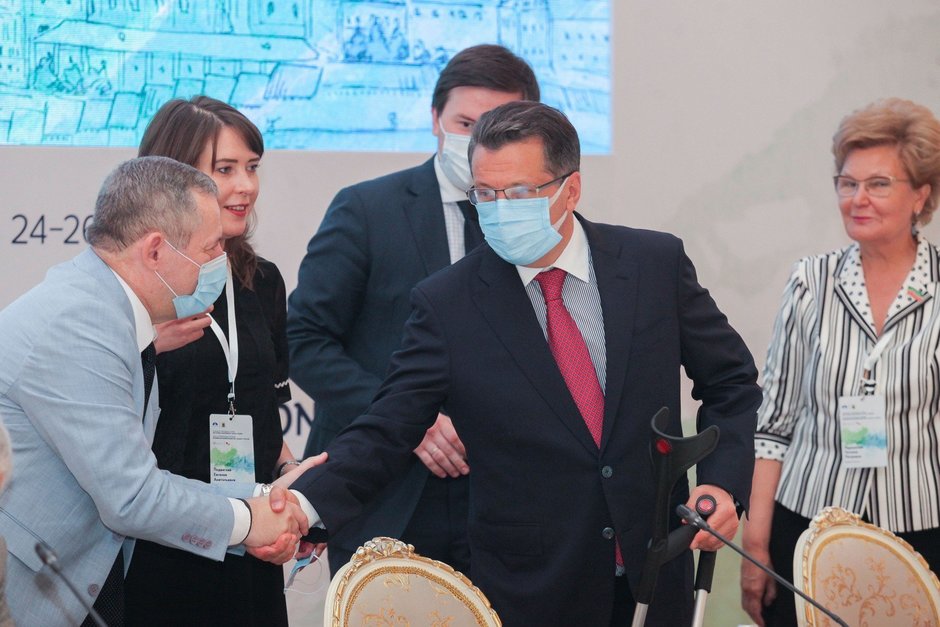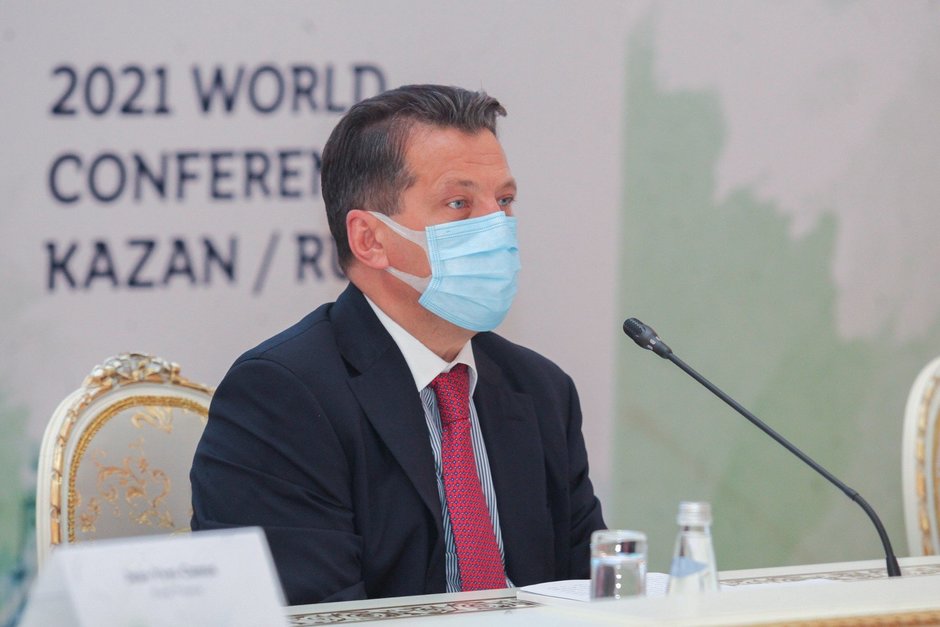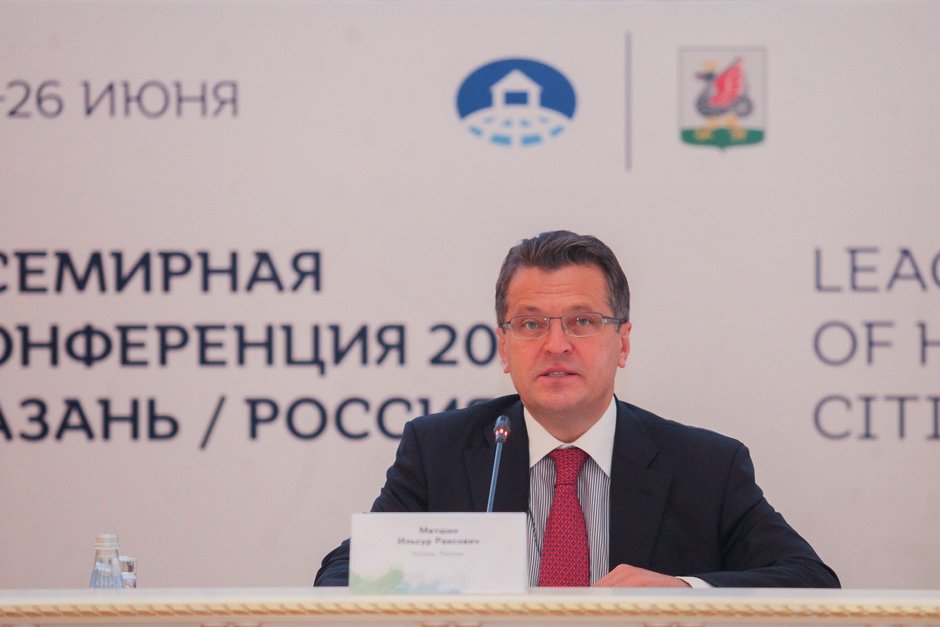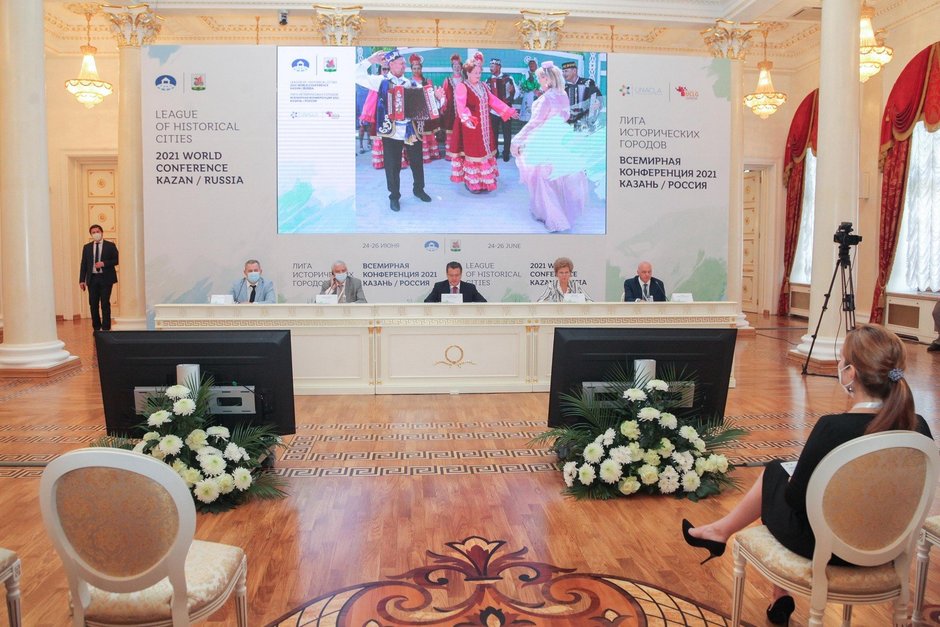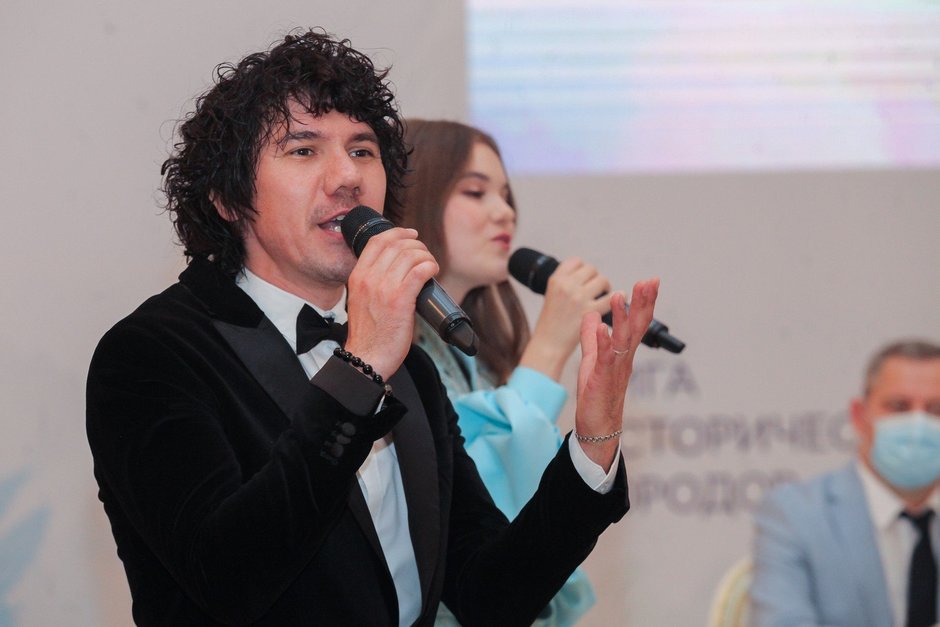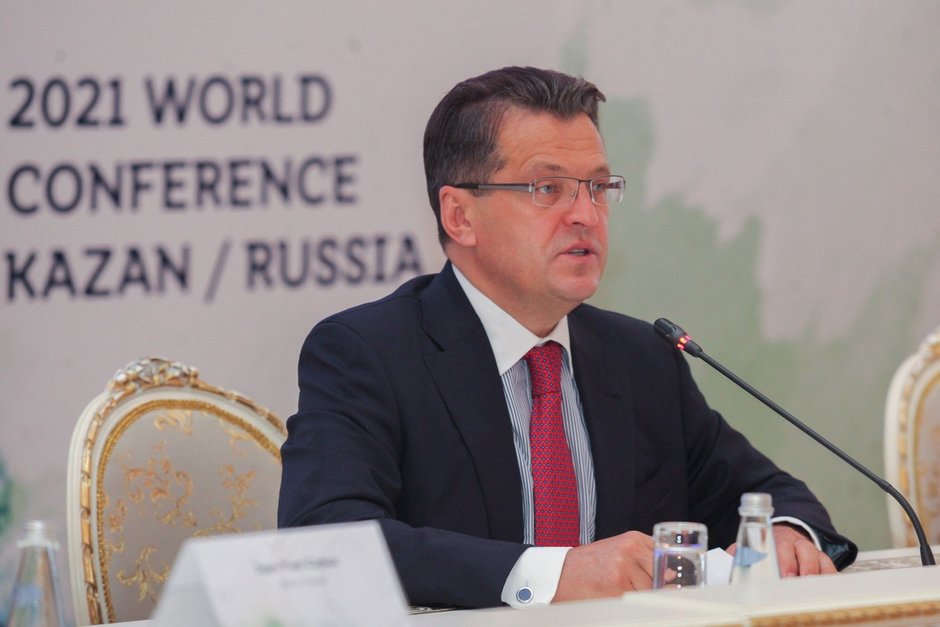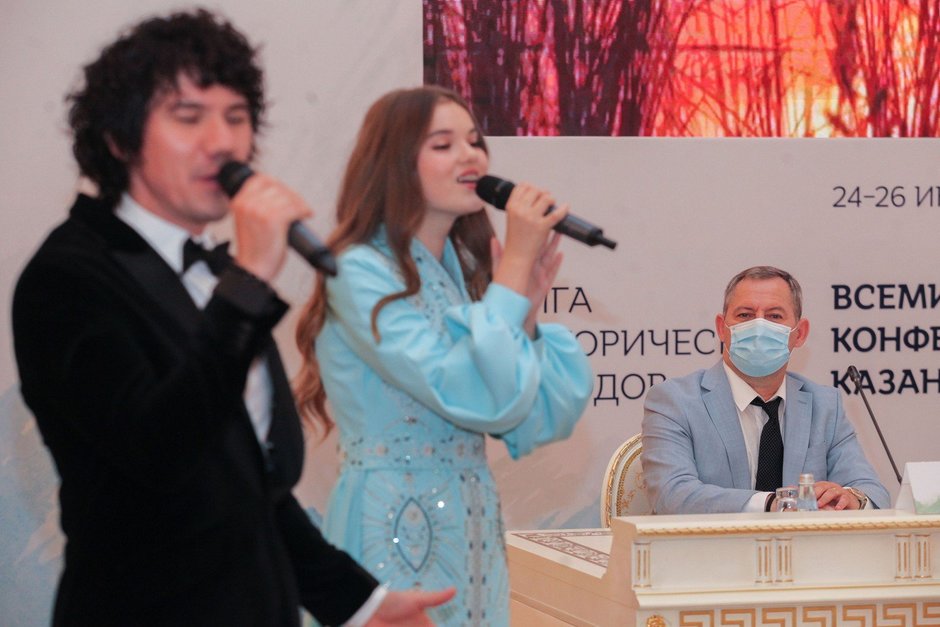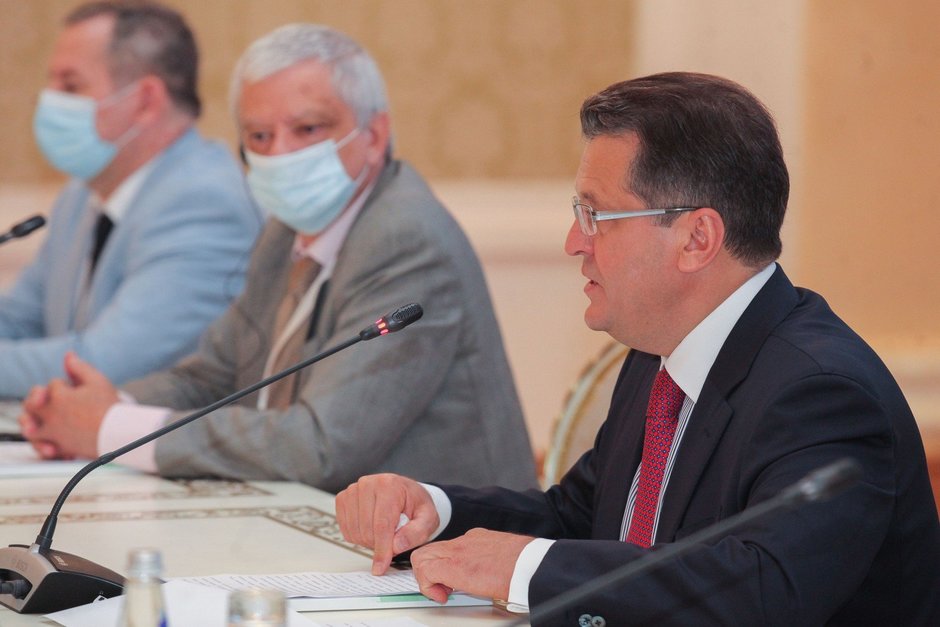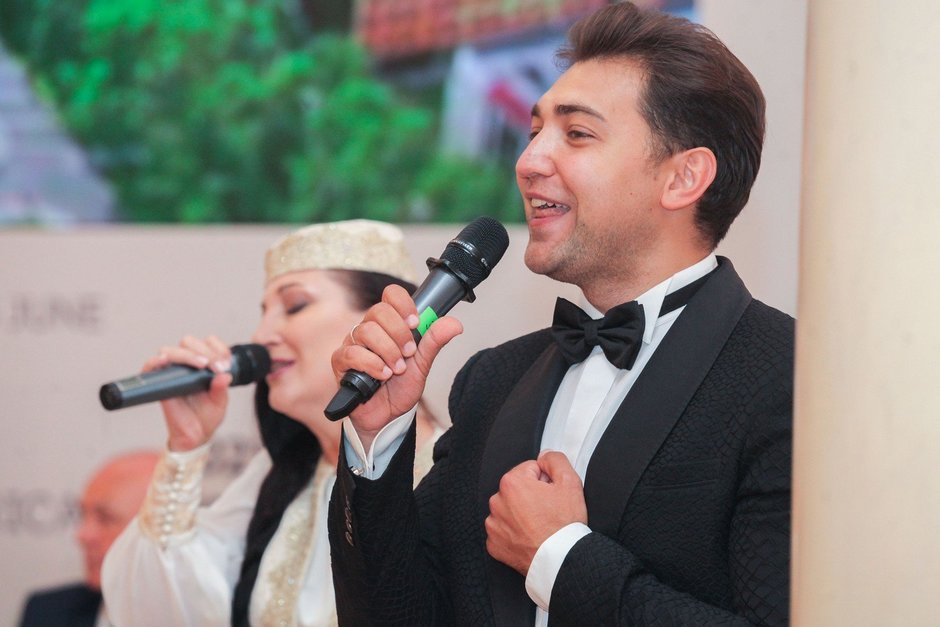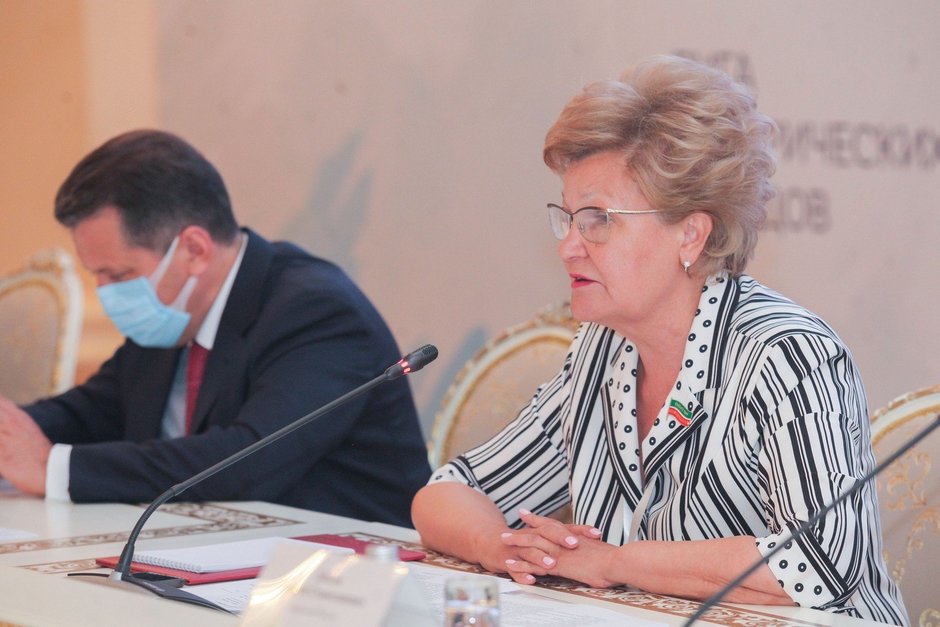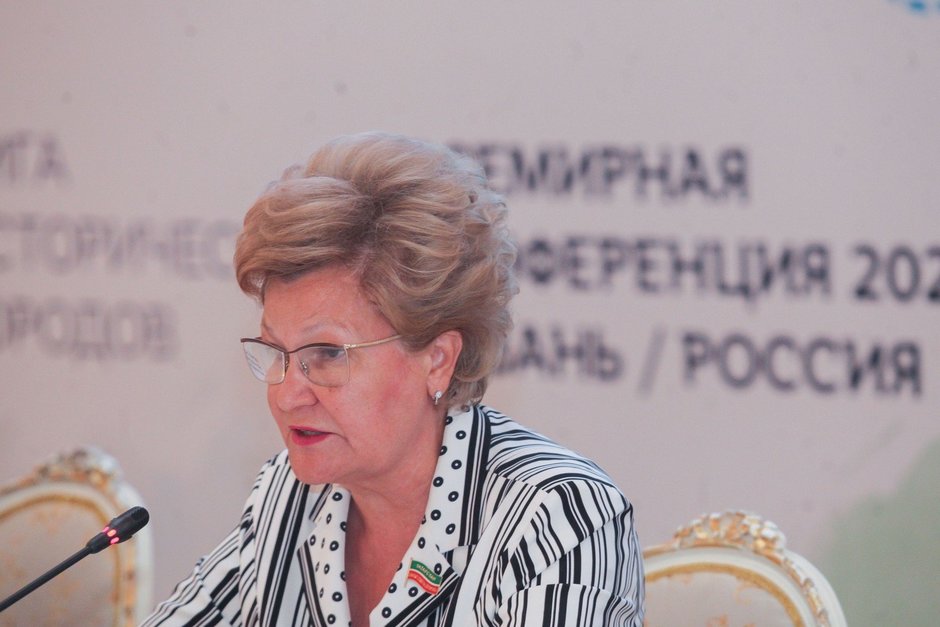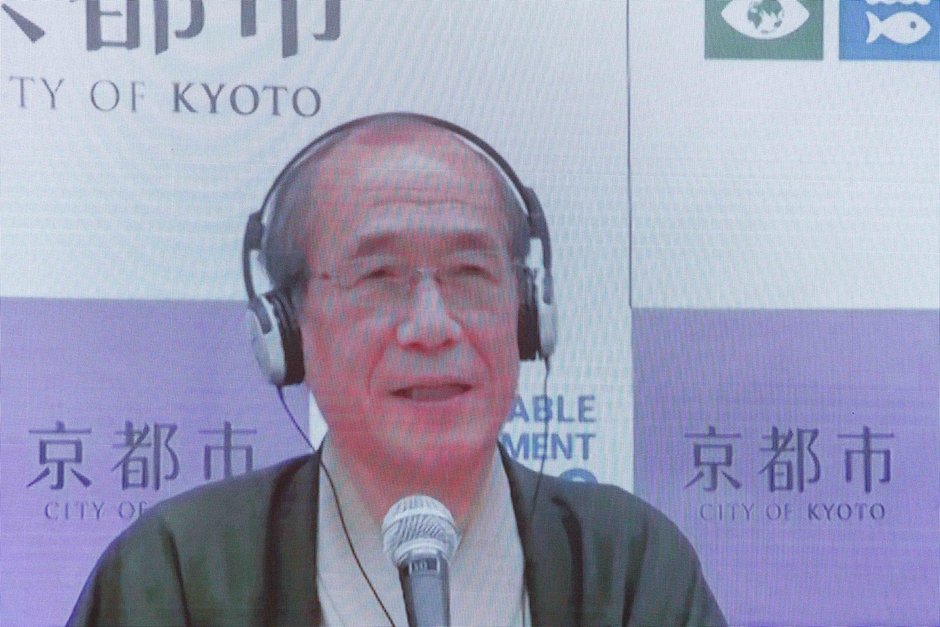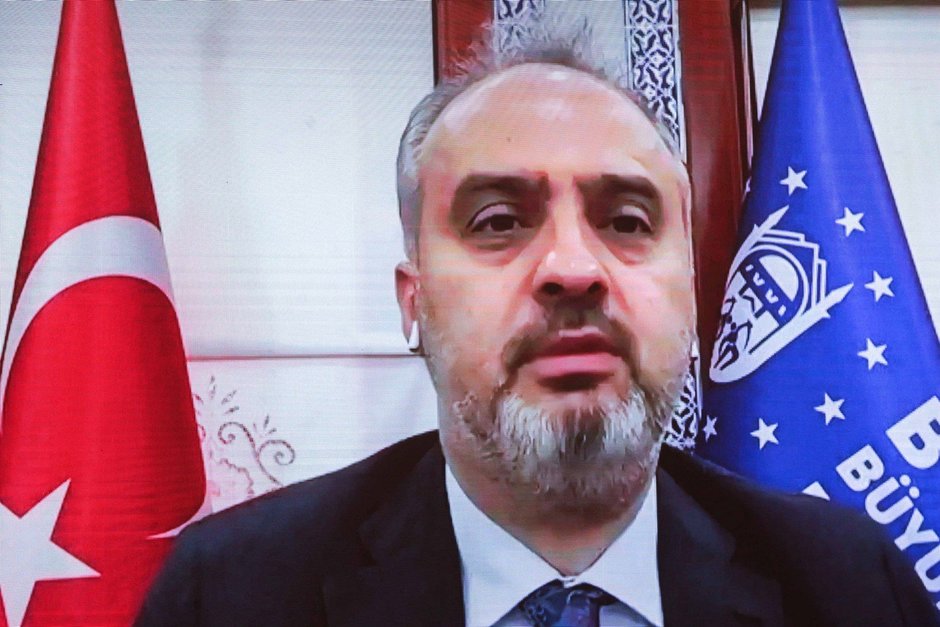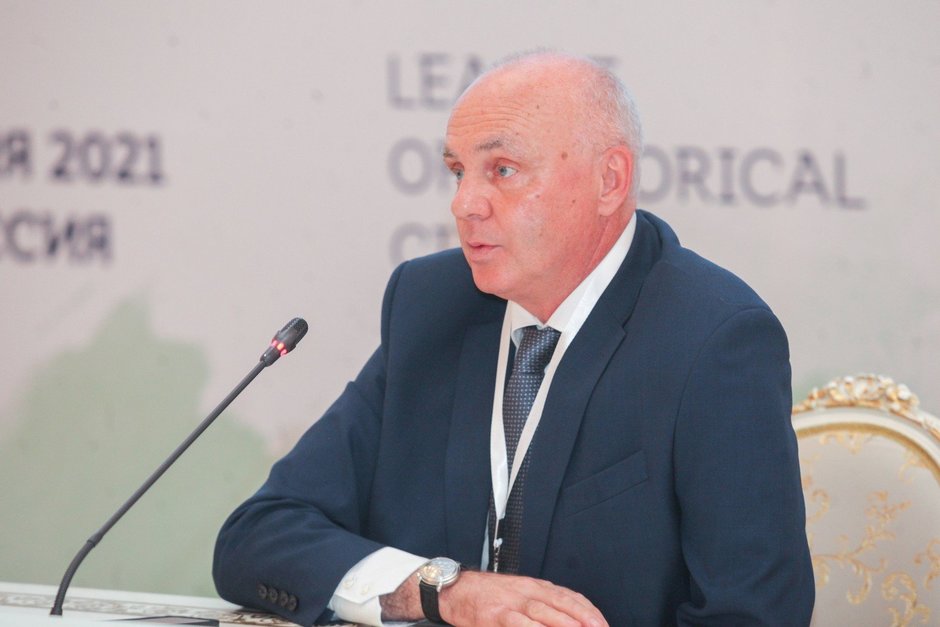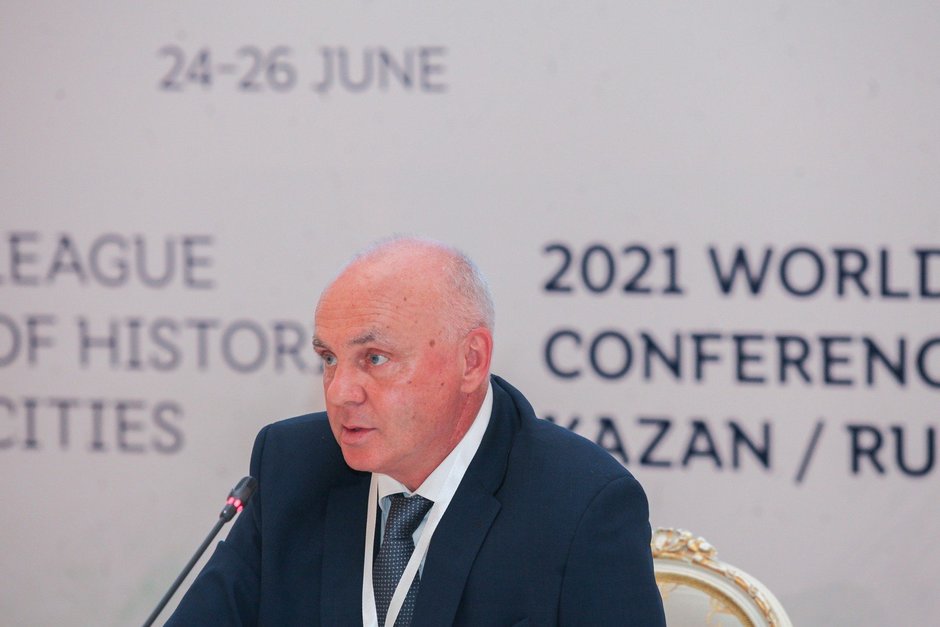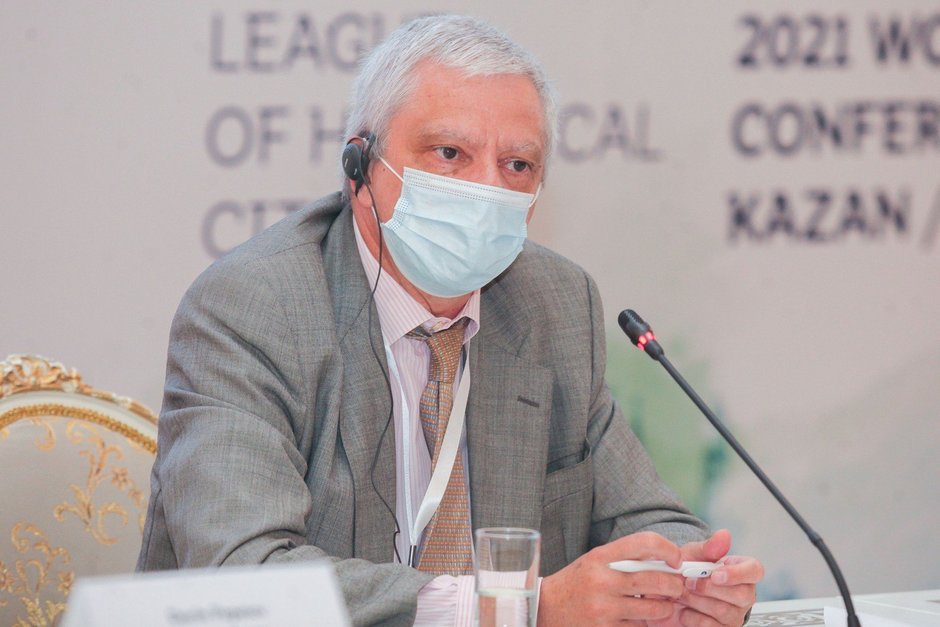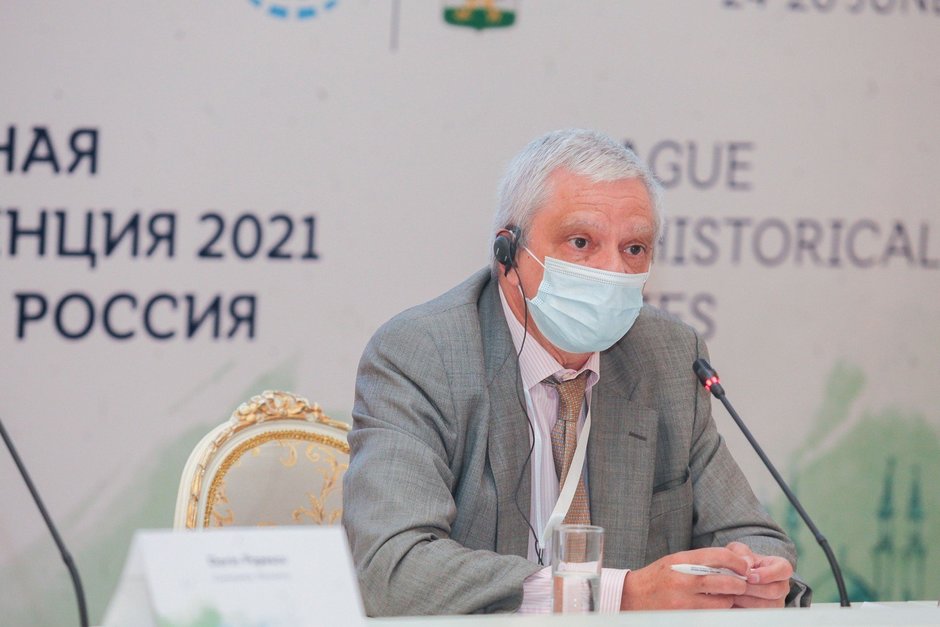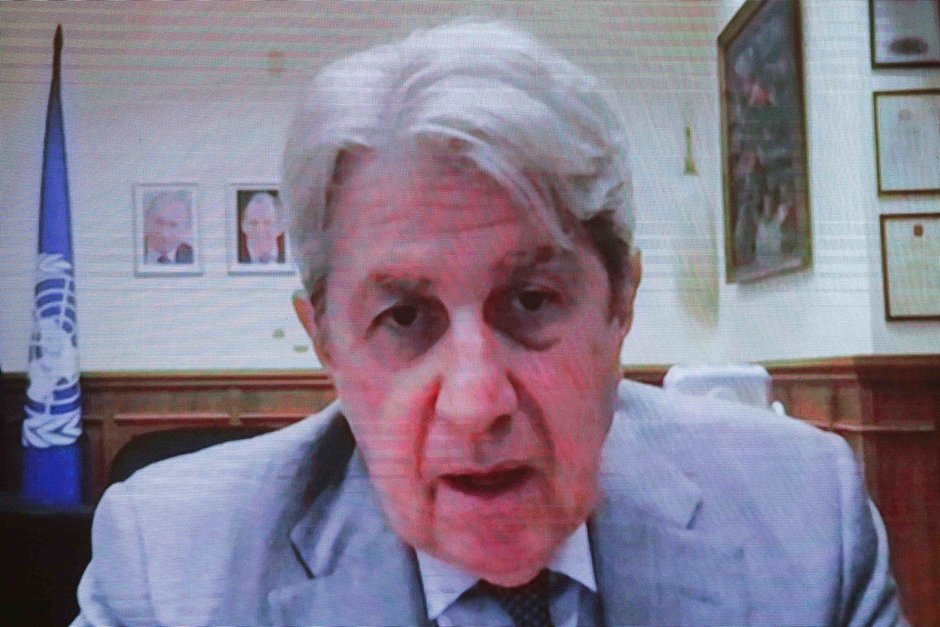‘For two days we will be talking about heritage, culture and the conservation of monuments’
The League of Historical Cities conference has taken place in Russia for the first time, and Kazan has hosted it. Representatives of more than 200 cities gathered to discuss the historical and cultural heritage as the foundation for a national, cultural and local identity. Read in Realnoe Vremya’s report what concerned participants in the meeting, what hopes they pinned on international cooperation and how the coronavirus pandemic influenced the format of the 17th conference of the League.
League of Historical Cities
Due to the pandemic, representatives of the League of Historical Cities gathered in a new format for the first time — online and offline. Some people managed to come in person, but some delivered reports online.
Before the opening of the conference, several attendees talked with journalists. Special Adviser to the Department of Foreign Affairs of Paris Jacques-Yves Camus explained how the capital of France conserved and multiplied the historical and cultural heritage in an aggravated epidemiological situation.
As he said, Paris ranks first in tourist traffic. A tough situation is unfolding amid the pandemic. Paris has found it tough but we are doing our best to fix the situation. Everybody is aware of the terrible catastrophe of the Notre-Dame de Paris. Now they are inviting international experts to solve this problem, doing everything to develop the cooperation of historical cities, the French adviser said.
Constanța’s Aide to mayor in international affairs Dorin Popescu started his speech in Russian “as a token of respect for you”, as he explained:
“After receiving an invitation from Kazan, we immediately decided to attend the conference: I think it is very important to express and publicly deliver our confidence in the power of international cultural projects that help to save, develop, protect our historical and cultural heritage. My goal here is to express our trust in culture. During these tough times, our collective culture is decreasing. The best way of making it stronger is to look for and take advantage of cooperation opportunities.”
Popescu said that he had already been in the Tatarstan capital 17 years ago. Vice Mayor Yevgenia Lodvigova joked: “This means you have never been in Kazan”, she meant how much the city had changed. Lodvigova was happy that the conference of the League of Historical Cities anyway took place — it had to be postponed last year because of the pandemic:
“In 2018, in Bursa, we won the right to host the conference among very serious opponents, eight cities: Shiraz, Wuhan, Ballarat, Tainan Chengdu, Yazd, Alba Iulia and Hebron. The jury unanimously decided to give Kazan the right to host the conference. We seriously prepared, held a meeting of the League’s Board of Directors at which we adopted the event’s programme. We thank participants in the League for coming. For two days, we will be talking about heritage, culture and the conservation of monuments.”
The conference will last until 26 June.
Russia hosting the League of Historical Cities for the first time
“In history of the League, the conference is taking place in Russia, at the heart of Eurasia, in a city founded more than 1,000 years ago that absorbed the culture, traditions and lifestyle of the West and East for the first time. Modern cities are not only architectural monuments, cities are, first of all, people, guardians of the hearth of traditional culture, the preserving link of times, fates and values. Traditions, layouts, history that left a trace on ornaments, symbols, crafts are the ground for identity and originality of our cities,” Mayor of Kazan Ilsur Metshin opened the conference with these words.
The league includes 125 cities around the world. All these cities are united into one organisation by Kyoto — the first meeting took place here, its mayor has been chairing the League successfully since its foundation day in 1987.
Welcoming the attendees, Kyoto Mayor Daisaku Kadokawa said how happy he was about the forum hosted in Kazan. As he said, he understands how diversity is worshipped and respected in our amazing city in which different religions and cultures co-exist in harmony. Daisaku Kadokawa is convinced that Kazan has had to perform a lot of tough tasks to host a hybrid conference for the first time in the League’s history despite the postponement because of the pandemic, which became a certain trial for the organisation. At the moment he was in Kyoto but hoped he one day would certainly visit our Kazan.
He added that Kazan went into the history of the League thanks to hosting the conference in the new format. Kadokawa reminded the audience that the union was created in an attempt of developing historical cities and supporting peace around the world. As he said, they not only encourage exchange between historical cities but also try to share various initiatives with their members by using their knowledge and experience as much as possible.
A declaration banning neither denying nor stopping globalisation was signed at the 16th world congress in Bursa three years ago. In the last years, it has become much easier to travel thanks to globalisation, see landmarks, run business, the head of the League went on. He thinks that all this helped to spread products and information, which had a positive impact on all members of the process.
On the other hand, higher mobility of people influenced the spread of infectious diseases around the world, including COVID-19. Restrictions on travelling during the pandemic allowed people to get acquainted with the history and culture of their own country, re-discover the attractiveness of their homeland. He says that an exchange of opinions on historical and cultural heritage as the foundation for national and regional identity is becoming more and more important.
Ethnic harmony in the big city
Opening the session on this topic, moderator of the conference Vice Minister of Culture of Tatarstan Damir Natfullin noted that the cultural heritage of Kazan and Tatarstan created a global image of the city and the republic. For our region, culture is as important as natural resources, oil and gas fields, he said.
The speaker stressed that Tatarstan was unique not only thanks to having a lot of cultures and religions but also peaceful coexistence and interaction of people of different religions and ethnicities. 173 nations live in the republic (115 in Kazan).
“It is important to pay attention to the conservation of the national identity. Kazan and the republic implement state programmes — national identity and national policy conservation programmes. 2021 was declared the year of mother tongues and national unity,” the vice minister noted.
According to him, culture and language we obtain in the environment are the foundation of any identity. And it is our cities that surround us: historical and cultural sites, museums, squares and parks. Immaterial cultural heritage is also an important aspect. Special attention should be paid to education, development of tolerance, respect for each other, Naftullin considers: “Today, at the plenary session, we have a chance of exchanging opinions on these issues.”
Head of the Department of National Policy in Linguistic Culture of Kazan’s Executive Committee Renat Mirgayazov noted that the support for conservation and development of natural and cultural diversity of peoples living in the city is one of the priorities of the city administration’s activity. Kazan has 37 national cultural unions, 193 religious organisations. This year, 36 million rubles have been given to implement programmes and new large-scale events dedicated to the year of mother tongues.
According to the speaker, Kazan pays special attention to national education: culture, traditions and customs of peoples living in the city are studied. Last year, over 141,000 students studied in schools, 51% of them are Tatars, 43% — Russians, 6% — representatives of more than 100 other nationalities that live in the republican capital. Classes of friendship and harmony have been offered for year seven students in the Tatarstan House of Peoples’ Friendship since 2013.
Kazan is a city of students. 13,000 foreign students from more than 100 countries of the world study in universities. Different events are held for them: an international open beauty and talent contest, a Russian language competition among foreign students, an open student intellectual festival and others.
When it comes to the development of national culture and traditions, the activity of municipal urban culture centres and bands has a big meaning — nowadays they are attended by more than 6,000 people.
Cultural projects, holidays in the republic — Nowruz, Sabantuy and others — as well as gastronomic festivals where one can taste cuisines of the world would be impossible without cooperation with the Tatarstan House of People’s Friendship. Representatives of different nationalist cooperate, host joint events and show their own example and inspire the spirit of good neighbourly relations and friendship in Kazan citizens, the speaker believes.
Vice Mayor of Paris Arnaud Ngatcha took the floor after the vice minister and talked about problems of cooperation in heritage.
He said that Paris was one of the pioneers in adopting a policy facilitating decentralised cooperation in heritage conservation and enables to reinforce links, exchange international experience. The local authorities’ policy on education, resources, making the nation healthy, culture is going to an international level. Since 1950, the concept of international solidarity has been understood at all power levels.
According to him, France has a policy that helps to develop town twinning between cities. 4,700 territorial French provinces are involved in this process, they support over 10,000 projects in town twinning, in partnership with 8,150 provinces in 134 countries. This partnership gave rise to the process of heritage evaluation, its restoration, reinforcement of trust between cities bound by certain agreements. On its territory, Paris stores a huge photo heritage — one of the most significant in the world. A special atelier was created to store photos, restore photo documents. It operates in cooperation with museums, libraries and archives in many cities of the world. Paris has a certain goal of strengthening this cooperation in the conservation, maintenance and evaluation of photo heritage, noted Arnaud Ngatcha.
Jianghong Yao delivered a report on the protection of cultural heritage in Xiamen. It is a famous port and tourist city on the eastern seashore of China with beautiful landscapes — the city in the sea and the sea in the city, a collection of ancient and modern Chinese cultures. The population is over 4 million people.
Xiamen is one of the first four economic zones of China that began to open up to the external world. Gulangyu Island is a national treasure. In 2017, it was listed by UNESCO World Heritage. The city protects material and not material cultural heritage sites.
Talking about the protection of historical buildings, the speaker said that the construction in the city was strictly controlled — any repair of historical buildings is possible only after a project on the conservation of unique architectural styles is approved.
13,000 people inhabit the island. There is a full set of public establishments, advanced health care, education, transport. The city is very careful about the conservation of the human environment. The population professes different religions: there are Catholic and Christian churches, Buddhist, Taoist and other cathedrals. All religions live in peace. Music and football appeared on Gulangyu 1,000 years ago. It hosts annual music festivals, football tournaments. The city is rich in exhibition halls about the island’s history and culture.
The conservation of immaterial cultural heritage has a huge meaning. They are in favour of the protection of immaterial cultural heritage sites. Xiamen is one of the first national cultural ecological reserves, Jianghong Yao noted.
Ruslan Timofeyev, vice head of the administration of Yakutsk, talked about national holidays and how the region’s climate made people’s character stronger:
“The Republic of Sakha is the coldest inhabited region on the planet. It is a cultural and educational centre. The friendship of peoples has been fostered by centuries, original culture and harsh climatic conditions.”
350,000 people representing 120 nations, small-numbered peoples of the North live in Yakutsk. The city hosts national celebrations. For instance, a festival held in June gathers 180,000 people in contests, horse racing.
“The goal of the holiday is to conserve traditions of Yakut people, unite people for the sake of peace and kindness, develop respect and harmony, provide a chance of an ethnic dialogue for the republic’s peoples. A Guinness record was set at the festival for the biggest circle dance. In 2017, a record in the number of people in national costumes in 2017. National costumes are a part of everyday life during the celebration,” the Yakut functionary concluded.
